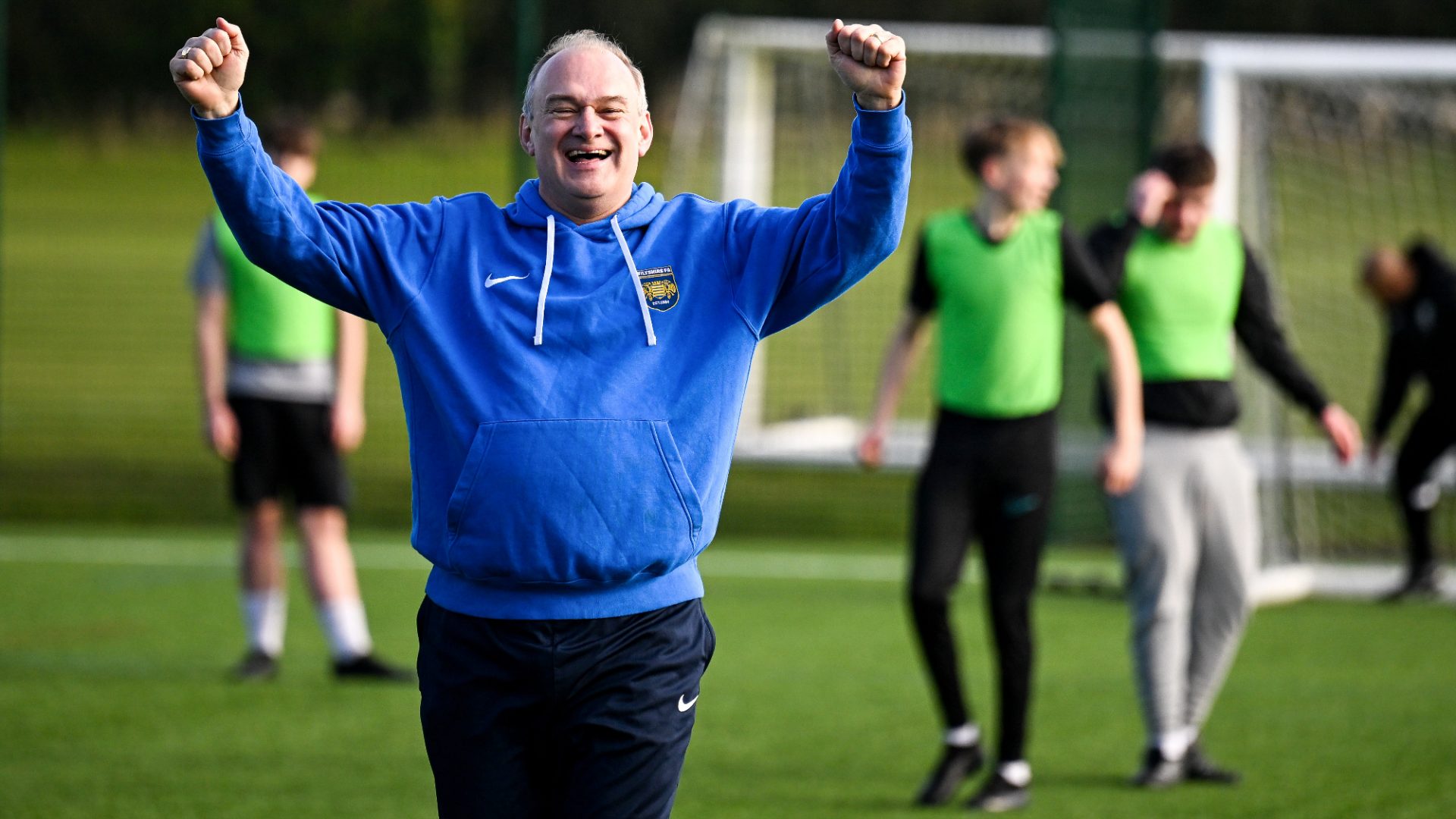I first met Ian McEwan in 1990 at a reading at Blackwell’s book shop in Oxford to mark the publication of his fourth novel, The Innocent. We chatted afterwards, and, as I left, I asked if he might like to come for dinner some time at All Souls, where I was then a fellow.
The writer’s eyes gleamed with mischief, as though I had suggested an ingenious diamond heist. “Ah, yes,” he said. “I’d like to have dinner there.”
In his masterly new novel, What We Can Know (Jonathan Cape), that very book shop is visited by the principal narrator, Tom Metcalfe – though only in a “virtual tour”.
After the catastrophic “Inundation” of 2042, much of the world is now underwater, and what survives of Blackwell’s is, like all the buildings that once stood around it, beneath the Vale of Oxford Sea, “silent in the watery dusk many feet below the surface as their limestone structures softly crumbled”.
Tom, a pioneering scholar of the literary period 1990-2030, recalls his wonder as the first person to take the tour in 83 years: “What treasures as the camera in a shaky hand showed me the shelves and packed tables. All recently published! I wandered through the shop in the company of what I imagined to be a young and earnest assistant… oh, to have wandered the aisles, thrilled to be riding the crest of newness, interest and abundance.”
Indeed, the novel opens in May 2119 with Tom making an arduous trip by boat from the University of the South Downs to the Bodleian Library – now relocated from underwater Oxford to Snowdonia, and accessible only by an old-fashioned funicular.
All Souls gets a mention, too: one of the literary figures whose past Tom is researching is said to have declined a fellowship (we never did fix that dinner date – though, through journalism, it has been my good fortune to bump into McEwan over the years).
At first glance, What We Can Know is a dystopian fiction in the tradition of JG Ballard or John Christopher. After climate disaster, nuclear exchanges, famines and plagues, the world’s population has shrunk from nine to four billion. Average life expectancy is only 62 in “our sleepy overlooked archipelago-republic”, ostensibly ruled by “Citizens Committees” (the membership of which is the subject of dark conspiracy theories).
Nigeria is the world’s last remaining superpower, the home of its most reliable digital storage and the keeper of its prime currency. Tom’s academic colleague and lover, Rose Church, has substantial savings held in Nigerian naira.
In the straitened 22nd century, acorn coffee is the norm – chicory a treat. Chocolate is as rare as it is in George Orwell’s Nineteen Eighty-Four. Windows are smaller because glass is so expensive.
Social media platforms are publicly owned, as is NAI, the national AI service, which students consult as “their confessional, their mirror, the focal point of their self-esteem”. And quantum computing has unlocked every digital communication ever sent (“we have robbed the past of its privacy,” says the university’s dean).
The “war with France” is mentioned as an aside. And the ethnic composition of the nation has changed completely since the period of Tom’s scholarly research. “We were almost all the same pale brown colour,” he reflects. “We lacked diversity!”
As so often with McEwan, however, the novel is a double helix; its second strand to be found in Tom’s obsessive quest for a legendary poem by Francis Blundy, a contemporary and peer of Seamus Heaney, which was read at a birthday dinner for his wife, Vivien, in October 2014, but has never been published or retrieved in original manuscript form.
A Corona for Vivien – inspired, McEwan reveals, by the Oxford poet John Fuller’s “magnificent, tender and technically brilliant” 2021 poem Marston Meadows: A corona for Prue – observes a fiendishly complex 15-sonnet form that only a master such as Blundy can pull off.
But it is lost. Myths swirl around its disappearance. Was it, as rumoured, a warning of climate disaster so powerful that an oil giant paid Blundy $100,000 to suppress it? Or did Vivien, who owned the only copy, on precious vellum, veto its publication?
“The Corona was more beautiful for not being known,” writes Tom. “Like the play of light and shadow on the walls of Plato’s cave, it presented to posterity the pure form, the ideal of all poetry.”
Yet such meditations cannot appease his yearning to track down this literary grail. When a precious clue comes his way, thanks to the numeracy of a teenager, he and Rose set off on a treasure hunt (not by accident does the shadow of Robert Louis Stevenson stalk these pages). And then, after 185 pages, McEwan takes a big
structural gamble, and the novel metamorphoses into something quite unexpected: it works superbly, but I shall not spoil it.
Eighteen novels in, McEwan is often described as our “state of the nation” author. And it is true that the morphing nature of British politics, society and character has captivated him in his half-century as a published writer.
The Child in Time (1987), for instance, is steeped in the anxieties of the Margaret Thatcher era and features a female prime minister who is unnamed but unmistakable (“The voice raised itself impersonally to deliver a set speech”). Amsterdam (1998), for which he won the Booker prize, is, among much else, a satire of Fleet Street.
Saturday (2005), much influenced in style by Saul Bellow, takes place on February 15, 2003, the day of the march through London against the Iraq war. The 2019 novella The Cockroach adapts the literary conceit of Kafka’s Metamorphosis to attack the idiocy of Brexit.
But the state-of-the nation novel is not the author’s primary genre. In fact, the postwar laureate of that particular form is the late John le Carré, whom McEwan has said “will be remembered as perhaps the most significant novelist of the second half of the 20th century in Britain.”
According to his published letters, le Carré thought that Amsterdam was “piss awful”. But le Carré warmed to the author when McEwan sought advice over lunch for his own spy novel, Sweet Tooth (2012).
Suggested Reading


David Bowie, the Great Curator
I think McEwan’s genius – and what makes him our greatest living author – resides in his ability to combine profound characterisation with an omnivorous, restless fascination with ideas. He marries the steel of the cerebral to the pulp of the intimate.
On which note, it is touching how many traces of his own life find their way into What We Can Know. Vivien’s first husband plays banjo in a jazz band, as McEwan once did. A poetic cycle by Francis is “ravishingly set for tenor and string orchestra by Michael Berkeley”, who in real life has been McEwan’s friend and musical collaborator for 50 years.
A row over the use of the word “hopefully” is inspired by the linguistic strictures of Christopher Hitchens and Martin Amis, who died in 2011 and 2023 respectively. Another member of that literary social circle, the poet James Fenton, features too.
At this distance, it is hard to communicate quite how thrilling, subversive and miraculously unsettling were McEwan’s first two collections of short stories: First Love, Last Rites (1975) and In Between the Sheets (1978).
For a generation reared to think that Roald Dahl’s twisty tales were pretty hot stuff, McEwan – an alumnus of Malcolm Bradbury’s creative writing class at the University of East Anglia – offered the literary counterpart to punk.
These two slim Picador volumes, full of psychosexual tension, transgression, and the macabre, were as pleasingly radioactive as, say, Never Mind the Bollocks or The Clash.
But McEwan was never going to limit himself to a single aesthetic.
In The Child in Time (1987), he embraced the paradoxes of the New Physics and quantum mechanics in the unexpected setting of a fiction about the loss of a three-year-old girl, Kate, and the purgatory of grief and guilt to which her parents, Stephen and Julie, are consigned.
The true nature of time – always a protagonist in McEwan’s writing, and sometimes a prankster – absorbs Stephen, who consults his quantum physicist friend Thelma. “The commonsense, everyday version of [time],” she tells him, “as linear, regular, absolute, marching from left to right, from the past through the present to the future, is either nonsense or a tiny fraction of the truth.”
Naturally, the distraught father fixates upon this rejection of the Newtonian universe: as a cosmic door ajar to alternative timelines, in which may be discovered “the untapped potency of weeks and months, the time that should have been hers. Kate’s growing up had become the essence of time itself.”
In common with McEwan’s latest novel, Enduring Love (1997) was framed as a scholarly inquiry, appendices and all; in this instance, a case study of de Clérambault’s syndrome, or paranoid erotomania. Its opening chapter, describing a hot air balloon ride gone horribly wrong, is a concise classic of tranquillity flipped into terror that was bound to end up on the silver screen.
All the same, McEwan told me in an interview in 2007 that Daniel Craig had been wrong for the lead role of Joe Rose – with whom Jed Parry (Rhys Ifans) becomes psychotically obsessed.
“Once he took up the Bond job, I realised that, actually, that was always my disquiet, because he is quite a tough-looking guy, and he can’t disguise it even wearing specs. So he was never really that threatened [by his male stalker].”
At the time, the author was more excited about the imminent release of Atonement, starring James McAvoy and Keira Knightley, based on his acclaimed 2001 novel set in a 1930s country house and on the battlefields of the second world war. He was executive producer of the movie – a commercial and critical hit.
Yet in a recent interview with the Sunday Times, he said that “I’d like to be remembered for more than Atonement”. One of the silliest whispers in the jealous alcoves of the republic of letters was that that particular novel somehow marked the taming of McEwan; a reflection, some claimed, of the deep contentment of his marriage to the author and journalist Annalena McAfee in 1997.
This was the opposite of the truth. If anything, his later work is more sinister, precisely because its horrors, deceptions and pathologies so often lurk in apparently benign contexts. He has never averted his gaze from the dark matter of human existence.
The world of Francis and Vivien Blundy – their apparent idyll in a lavishly converted barn in Gloucestershire – is a silent scream painted by Bacon in pastels. There is deceit, secrecy, resentment and infidelity skulking in every joist, every perfectly curated surface, every disease-proof elm. There is ferocious wit, too.
It is precisely this indeterminacy, this swaggering risk that so intoxicates Tom. Though he knows full well that the years 1990 to 2030 were the prelude to disaster, he is in love with the lethal contradictions of our own times – dismissed by Rose as our “blithe contempt”.
“What brilliant invention and bone-headed greed,” Tom writes. “What music, what tasteless art, what wild breaks and sense of humour: people flying 2,000 miles for a one-week holiday; buildings that touched the cloud base; razing ancient forests to make paper to wipe their backsides. But they also spelled out the human genome, invented the internet, made a start on AI and placed a beautiful golden telescope a million miles out in space.”
McEwan has said that “the word I hate most in the language is ‘closure’.” Though What We Can Know describes a mutilated, stultified future with force and rigour, it never descends to political homily. Indeed, its narrator accepts that an existence paralysed by loyalty to the past and the future is impossible: “We are trapped between the dead and the unborn, the past ghosts and the future ghosts, and they matter less… Our ultimate loyalties must be to the loud and ruthless present.”
This is not wilful blindness, much less ignorance or intergenerational irresponsibility – McEwan was a climate activist long before the issue was mainstream –but a hard-won declaration of love for the moment, for the here-and-now.
As Stephen reflects when a baby is born at the end of The Child in Time: “This is really all we have got, this increase, this matter of life loving itself, everything we have has to come from this.”
In What We Can Know, the survivors’ “three-word history [is] bleakly simple: we scraped through.” The same might be said of literary fiction, which is in generally poor shape but still, somehow, keeps going. And it is so important that it does.
As McEwan wrote in 1989: “The very form of the novel, or the very nature of the possibilities it affords – imaginatively pluralistic, humanistic, intrigued by the fate of individuals, sceptical – suggests a clamorous democracy.”
What future for that democracy? At 77, the great literary magus is as excited as ever by these perilous possibilities, and by where they might lead.




